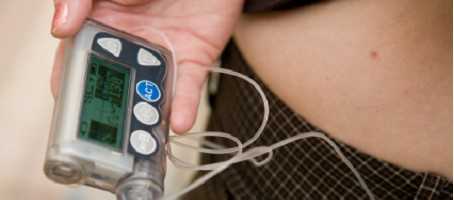The JDRF has run the first home trial of artificial pancreas technology in children as the charity learns that people with type 1 diabetes experience an average of 10 hypos per week.
The pioneering trial has seen the technology provided to 16 UK children with type 1 diabetes aged between 12 and 18 years old. The children, who were all familiar with using insulin pump technology in their daily lives, wore the closed loop artificial pancreas system over a 3 week period and in another 3 week period, the children wore the system as a pump without the artificial pancreas technology running.
A closed loop artificial pancreas system involves using an insulin pump which is able to respond to glucose level data provided by a continuous glucose monitor.
The clinical trial successfully showed that the artificial pancreas system was effective in improving over night blood glucose control and reducing the number of instances of nocturnal hypoglycemia. In addition, in the 3 weeks when the artificial pancreas system was in use, the participants’ total daily insulin dose was 2.3 units lower.
Success of the trial comes at an important time as the JDRF, which supported the trial, has found that people with type 1 diabetes have to deal with an average of 10 hypos per week.
The data comes from 10,000 people with type 1 diabetes that have been using the mySugr app. Keeping blood glucose levels from being too high or too low is very challenging and the data shows that most people with type 1 diabetes find it very difficult to prevent hypos from regularly occurring.
Chief Executive of JDRF UK, Karen Addington said: “Hypos are what people living with type 1 diabetes hate most. Ten hypos a week is a shockingly high figure, demonstrating just how much we need the artificial pancreas to become an accessible reality. Thankfully, the results of this latest artificial pancreas study are really exciting.”
In addition to closed loop artificial pancreas technology, Diabetes.co.uk has also reported on an implanted insulin pump which uses a biologically responsive gel that releases insulin at different rates depending on how high or low blood glucose levels are.
What's new on the forum? ⭐️
Get our free newsletters
Stay up to date with the latest news, research and breakthroughs.





